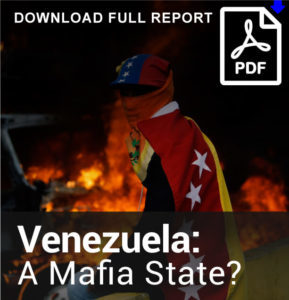 Juan Guaidó, whom the United States and about 50 other nations recognize as Venezuela’s rightful leader, has said he will confront Nicolas Maduro’s security forces if need be, making aid delivery a proxy contest between his backers and Maduro’s still formidable hold on Venezuela’s military and security apparatus, the Washington Post reports.
Juan Guaidó, whom the United States and about 50 other nations recognize as Venezuela’s rightful leader, has said he will confront Nicolas Maduro’s security forces if need be, making aid delivery a proxy contest between his backers and Maduro’s still formidable hold on Venezuela’s military and security apparatus, the Washington Post reports.
Some in the opposition quietly predicted a military pronouncement in favor of Guaido as early as Jan. 23, the day he proclaimed himself president at a rally in Caracas, Reuters notes:
Top military officials were silent for hours after Guaido’s pronouncement, leading to speculation that Maduro was frantically negotiating with officers not to switch sides. Yet only a handful of active officers backed Guaido. Expectations of a quick military proclamation have given way to concerns over a slow and complicated path forward, both in Caracas and Washington.
“I don’t think (Washington) understood the complexities of the target, of Venezuela: all the overlapping security that Maduro has available; the things at his disposal,” said one former U.S. administration official in touch with current officials.
 Outsiders tend to play down the ideological commitment of some in the armed forces,* the Economist notes:
Outsiders tend to play down the ideological commitment of some in the armed forces,* the Economist notes:
Military units have political commissars, many of them Cubans. Even if most of the air force’s 23 Sukhoi jets are grounded, it only needs one to be operational to, say, bomb Bogotá, if Colombia becomes the launchpad for a military intervention. There are many guns in the hands of pro-regime militias. Venezuela has a tradition of guerrilla warfare.
An American invasion would thus be highly risky. It would also be counter-productive, because it would deprive a new government of legitimacy and revive anti-imperialism across Latin America when the main issue is the defence of democracy.
But in Venezuela, the government can potentially draw on a vast civilian militia, a brutal police special force known by its Spanish acronym FAES, and hundreds of gangs known as colectivos, some of which are armed, the FT adds. It is this potent mix that possibly lies in wait for volunteers who, according to Mr Guaidó and the US government, will take the aid across the Táchira river to Venezuela on Saturday.
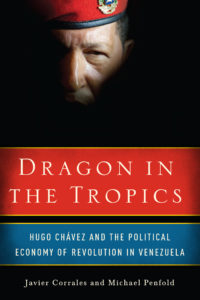 What makes current conditions in Venezuela more conducive to a change in government than the various other crises the regime has faced over the past two decades? Freedom House asked Amherst College political scientist Javier Corrales, an adviser for Freedom in the World and the coauthor with Michael Penfold of Dragon in the Tropics: Venezuela and the Legacy of Hugo Chávez.
What makes current conditions in Venezuela more conducive to a change in government than the various other crises the regime has faced over the past two decades? Freedom House asked Amherst College political scientist Javier Corrales, an adviser for Freedom in the World and the coauthor with Michael Penfold of Dragon in the Tropics: Venezuela and the Legacy of Hugo Chávez.
The obvious factor is the harrowing economic and political conditions on the ground which are widely discussed in the press, he said. But there is another factor making this round different that is less obvious: what I call Venezuela’s “institutional spring” or even “constitutional spring” – in short, the return of parliamentary politics, he added:
- First, adherence to the pact among the political parties in the National Assembly, as the parliament is called in Venezuela, to rotate the presidency of the institution among parties. This was ratified in December.
- Second, reliance on leaders who are from a new generation but are not iconoclastic outsiders. Juan Guaidó is a young new face, but he rejects neither institutions nor the established leadership. Guaidó has been involved in party politics for several years and has been negotiating with, and mentored by, existing leaders and existing parties.
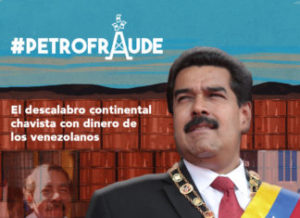 Third, reliance on identifying the government’s gross violations of the constitution, the most prominent of which are perhaps Maduro’s electoral moves between 2015 and 2018: dismissing calls for a recall referendum, ignoring the results of the National Assembly elections, conducting a highly irregular election for the presidency and an unconstitutional election for a new Constituent Assembly.
Third, reliance on identifying the government’s gross violations of the constitution, the most prominent of which are perhaps Maduro’s electoral moves between 2015 and 2018: dismissing calls for a recall referendum, ignoring the results of the National Assembly elections, conducting a highly irregular election for the presidency and an unconstitutional election for a new Constituent Assembly.- Fourth and finally, using institutions to take a bold step—declaring that the solution for Venezuela is to transfer power to the only democratically elected body in the country, the National Assembly.
* In numerical terms, the Bolivarian militia is the biggest threat to the convoys. It consists of about 1.7m civilians — 6 per cent of the population — who claim they will take up arms to defend Venezuela and the 20-year-old socialist regime, the FT reports:
Some are old men; others are young people with no experience. But, nonetheless, the milicianos are ideologically motivated. ….. Created by Mr Maduro in 2017, the FAES is a newcomer in the state security apparatus, but it already has a reputation for deadly force. People in poor neighbourhoods have reported black-clad, hooded FAES operatives raiding houses by night, abducting government opponents and killing people. Last week the US Treasury added the head of the unit to its list of sanctioned individuals, saying the force was “known for its brutal methods”.
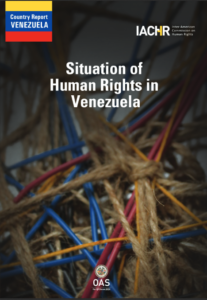 Mexican President Lopez Obrador’s tacit support for Maduro will diminish his political capital at home and abroad, argues Council on Foreign Relations analyst Shannon K. O’Neil.
Mexican President Lopez Obrador’s tacit support for Maduro will diminish his political capital at home and abroad, argues Council on Foreign Relations analyst Shannon K. O’Neil.
The United States, the Lima Group, and the international community should continue leading efforts to help Venezuelans through peaceful and non-violent means, such as providing humanitarian aid, says Moises Rendon, associate fellow and associate director of the Americas Program at the Center for Strategic and International Studies in Washington, D.C. The path to limit the suffering of Venezuelans and help restore Venezuela’s democracy could be accelerated if the following steps are taken in the short-term:
- provide much-needed humanitarian assistance within Venezuela, starting on January 23;
- help Guaidó’s government get off the ground by recovering the Republic’s assets from Maduro’s control and transferring them to Guaidó and the National Assembly;
- back the National Assembly’s amnesty law for current and former military officials who decide to help restore the country’s democracy and let humanitarian aid in;
- increase pressure on Maduro and his inner circle with individual sanctions, especially by countries who have not imposed sanctions yet;
- prohibit any further international agreements or oil payments to the Maduro regime; and
- recognize the new ambassadors appointed by Guaidó’s government in those countries and institutions that have recognized him as the legitimate interim president of Venezuela.
Leopoldo López, a former mayor of a Caracas borough, helped engineer Guaidó’s meteoric rise, according to the Guardian.
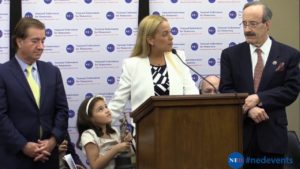 “Leopoldo’s in contact with everyone, every day, constantly,” said López’s wife, Lilian Tintori [right, who received the National Endowment for Democracy‘s 2015 Democracy Award on his behalf]. “He’s been sewing together an opposition that’s totally united and strong and pushing in the same direction, which is what we are seeing now.”
“Leopoldo’s in contact with everyone, every day, constantly,” said López’s wife, Lilian Tintori [right, who received the National Endowment for Democracy‘s 2015 Democracy Award on his behalf]. “He’s been sewing together an opposition that’s totally united and strong and pushing in the same direction, which is what we are seeing now.”







